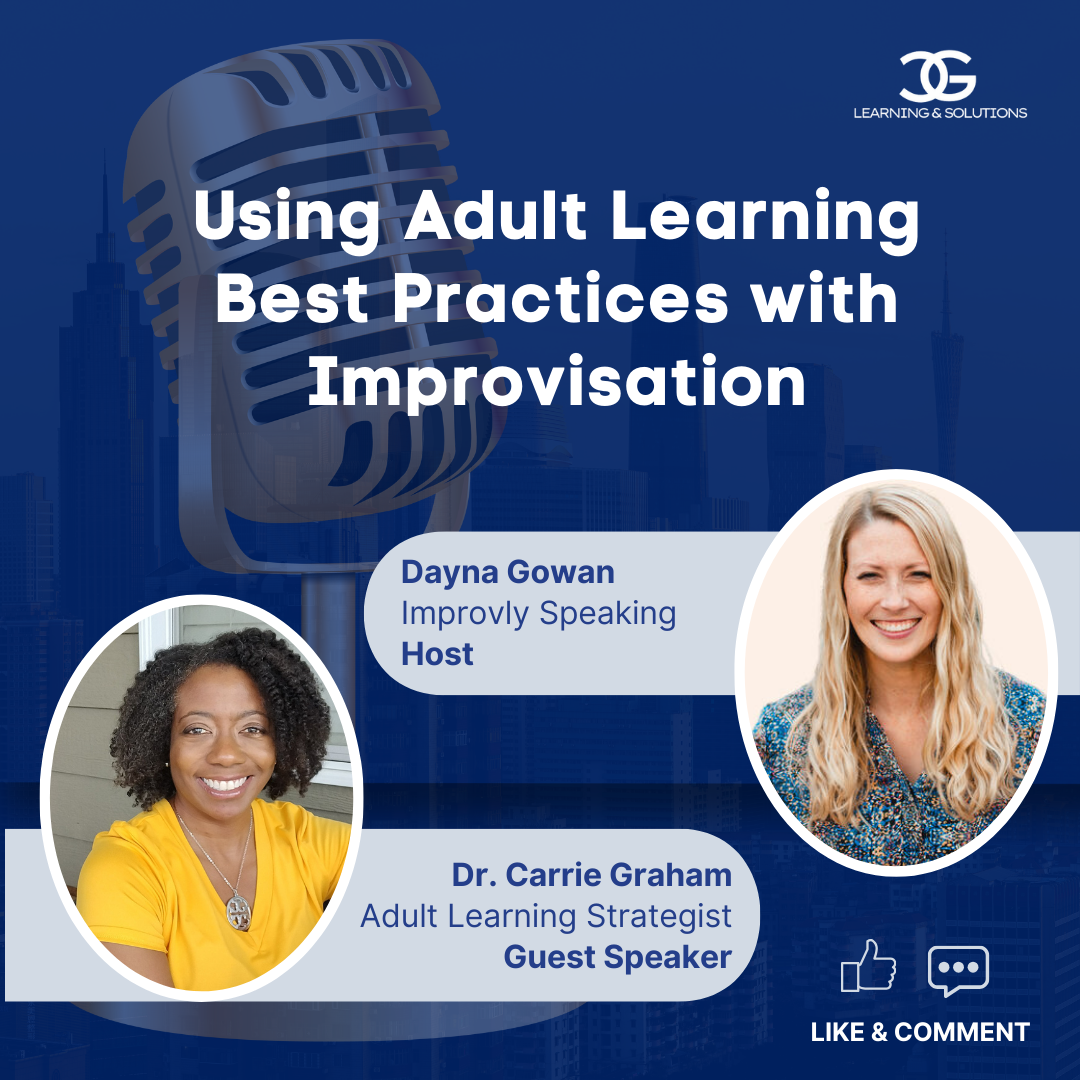Episode Overview
This episode features Dr. Carrie O. Graham, an adult learning expert and instructional design strategist based in Charlotte, NC. The conversation explores the intersection of adult learning principles, improvisation techniques, and professional development, offering insights for anyone involved in training and development.
Listen Here > https://www.youtube.com/watch?v=EfC02zBxcjU
10 Key Points
- Adult Learning Goes Beyond Learning Styles: While many people know about auditory, visual, and tactile learners, adult learning encompasses much broader principles that consider how adults process information differently than children.
- Strategic Integration is Essential: Dr. Graham helps businesses improve learning outcomes by strategically integrating adult learning best practices into their training and development programs.
- Academic Foundation Matters: With a Ph.D. in Learning, Leadership, and Educational Policy from the University of Connecticut, Dr. Graham brings 25+ years of research-backed experience to leadership development across industries.
- Mentoring Requires Intentional Design: Adult learning principles can be applied to mentoring relationships, particularly in addressing gaps for underrepresented groups in leadership positions.
- Career Transitions Benefit from Learning Principles: Dr. Graham's own career shift from Athletic Training to Adult Learning demonstrates how professional development can be guided by learning theory.
- Public Speaking Skills Connect to Learning: Conference speaking and presentation skills align with adult learning principles, as both require understanding how audiences process and retain information.
- Improvisation Enhances Professional Skills: Applied improvisation techniques like listening, letting go of perfection, and embracing mistakes directly support adult learning environments and leadership development.
- Creativity Supports Professional Growth: Engaging in creative outlets and handling beginner status in new endeavors builds resilience that transfers to professional development contexts.
- Growth Mindset is Foundational: The "yes, and..." mindset from improvisation aligns with growth mindset principles essential for continuous learning and leadership development.
- Practical Application is Key: The gap between theory and practice in adult learning requires intentional bridge-building to empower employees and develop leadership qualities effectively.
10 Takeaways/Action Items
- Assess Your Training Programs: Evaluate whether your current training and development initiatives incorporate adult learning best practices or rely solely on traditional teaching methods.
- Develop a Professional Development Plan: Create structured approaches to employee growth that consider how adults learn best, moving beyond one-size-fits-all training solutions.
- Integrate Applied Improvisation: Incorporate improvisation techniques like active listening and mistake embracement into your leadership skills development programs.
- Design Better Mentoring Programs: Apply adult learning principles to mentoring relationships, especially for developing leadership qualities in underrepresented groups.
- Embrace the Beginner's Mindset: Practice approaching new creative endeavors or skills with curiosity rather than perfectionism to model growth mindset for your team.
- Bridge Theory and Practice: Identify gaps between learning theories and actual implementation in your organization's development training programs.
- Improve Public Speaking Through Learning Principles: Apply adult learning concepts to enhance your presentation and communication skills for better audience engagement.
- Empower Employees Through Strategic Learning: Use research-backed adult learning strategies to create more effective professional development opportunities that truly empower employees.
- Cultivate "Yes, And..." Culture: Implement growth mindset principles in your leadership approach, encouraging experimentation and learning from mistakes.
- Seek Expert Guidance: Consider consulting with adult learning experts to strategically improve your organization's approach to training and development, ensuring programs actually achieve desired learning outcomes.
Resources
